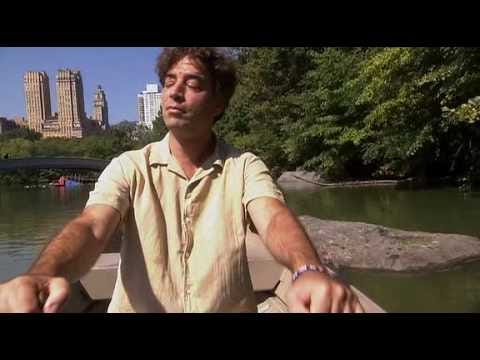“Revolution requires a transformation of human nature, so that people are capable of democracy” — Michael Hardt
Short Film, 2008. Transcript.
“Michael Hardt on Revolution” (from Examined Life, 2008)
MICHAEL HARDT: For my generation, in the mid-80s, when I was in my 20s, just starting to do politics in a serious way, it seemed like the only way to, the only outlet for revolutionary desire was to go to Central America and to somehow participate in, or at least observe, their revolutions.
So a lot of people went to Nicaragua. I, with my friends, was mostly interested in El Salvador but the thing I realized at a certain point was that all we could do was really observe what their revolutions were.
The defining moment came for me in a meeting in El Salvador with a group of students at the University of El Salvador, and at a certain point a friend there said, look, we’re really grateful for these North American comrades who come to help us but we really, what would be really be best for us, is if you all would go home and make revolution in the U.S. That would really be better than trying to come help us here. And it’s true, of course, I don’t think any of these North Americans were particularly helpful in Nicaragua and El Salvador, et cetera.
But I said at that point, Reagan is in the White House, I have no idea what it would mean to make revolution in the U.S.
….
(3:21)
We’re stuck, conceptually, between two almost cliché ways of thinking revolution today. On the one hand, we have the notion of revolution that involves the replacement of a ruling elite with another, better in many ways, ruling elite. And that is, in fact, the form that many of the modern revolutions have taken, and have posed great benefits for the people et cetera, but they have not arrived at democracy. And so that notion of revolution is, really, discredited, and I think rightly so.
(3:53)
But opposed to that is another notion of revolution. Which I think is equally discredited from exactly the opposite point of view. Which is the notion of revolution, that in fact has not been instituted, that thinks of revolution as just the removal of all of those forms of authority, state power, the power of capital, that stop people from expressing their natural abilities to rule themselves.
(4:19)
The question of human nature has long been a thing of political philosophy. In fact, I’m sure everyone had some stupid evening in college smoking way too much and talking, where you end up in a discussion where, like, you decide you disagree with your friend because she thinks that human nature is evil, you think human nature is good, and you can’t get any further. I mean, that kind of stupidity, I think, has affected a lot of the history of political philosophy. And I think the relevant fact for politics … is really that human nature is changable. Human nature isn’t good or evil. Human nature is constituted. It’s constituted by how we act, human nature is in fact the history of habits and practices that are the result of past struggles, of past hierarchies of past victories and defeats. This is the key to rethinking revolution, is to recognize that revolution is not just about a transformation for democracy, it’s really, revolution really requires a transformation of human nature, so that people are capable of democracy.
(5:50)
Democracy is one of those concepts that, it seems to me, has been almost completely corrupted today. In some cases it’s used to mean simply periodic elections with a limited choice of rulers. In other cases, when one thinks especially in international affairs, it often means following the will of the United States.
But really, democracy means the rule of all by all. It means everybody involved in collective self rule.
…
(6:35)
How do you transform human nature so that people will be capable of democracy? Lenin’s solution to this problem is a properly dialectical one. He thinks that – and this is in large part what the Soviets enact – is that there has to be a negation of democracy, call it dictatorship of the proletariat, some sort of hegemonic state, that would then operate the transition, that would transform human nature, then to eventually arrive at the time when people are capable of democracy, the state is no longer necessary.
(7:07)
It is properly the dialectical nature of this that seems, to me, mistaken. How do people learn democracy? How does human nature change to become capable of democracy? Not by its opposite, it can only be done in a sort of positive development, by, you can only learn democracy by doing it. So that seems to me, the conception, the only way that seems to me, today, the way to rehabilitate the conception of revolution.
Revolution, then, today, refuses that dialectic between purgatory and paradise, it is, rather, instigating utopia every day.
….
(9:05)
It makes little sense to me to say revolution cannot be made in the United States, or revolution cannot be made in Europe, because everyone is too comfortable, because they have too much to lose, et cetera. They too have an enormous amount to gain. When we say a better world is possible we don’t just mean a better world [for those] who are least [well] off, today. We mean a better world for all of us.
###


